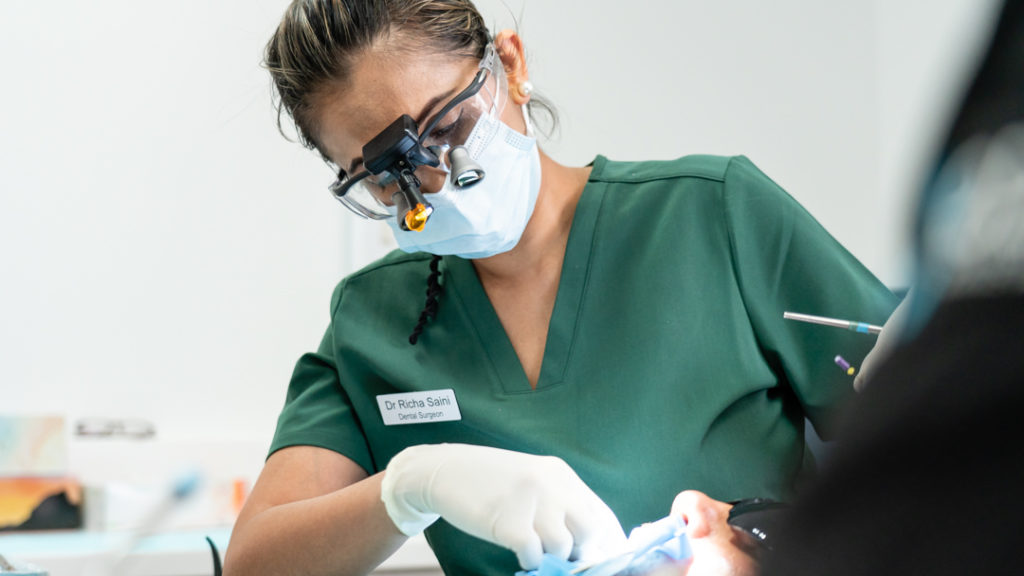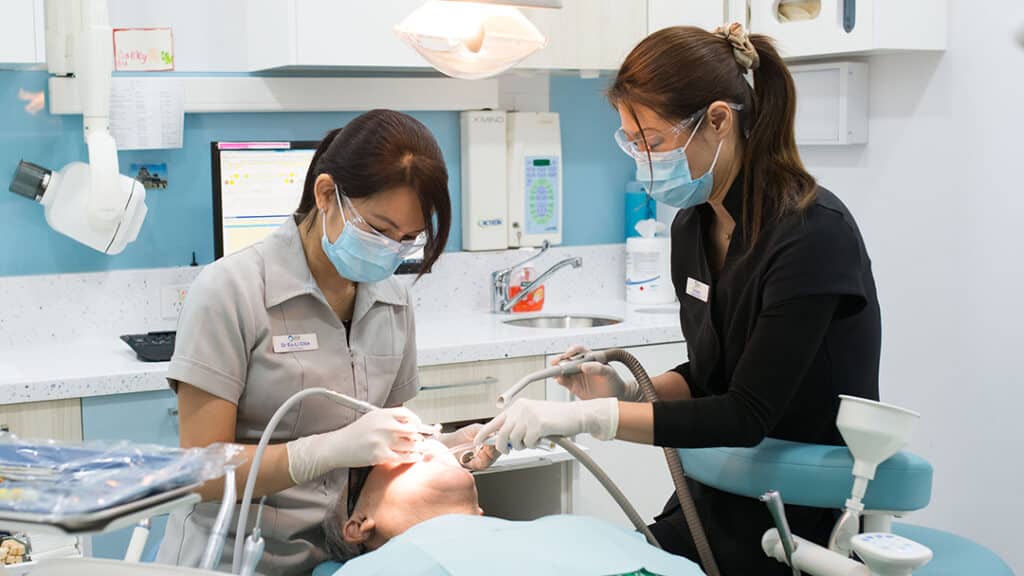
Do’s And Don’ts After Wisdom Tooth Removal
It’s not uncommon to feel some anxiety when it comes time for wisdom teeth removal. After all, oral surgery can be intimidating! But with the right preparation and care, you’ll have nothing to worry about. To make sure your recovery goes smoothly, there are a few do’s and don’ts after wisdom tooth removal that you should keep in mind. From taking painkillers as needed to avoiding tough foods, these tips will help ensure a speedy and successful healing process. Read on to find out more about what you should – and shouldn’t – do following an extraction.
What Is Wisdom Tooth Removal?
Wisdom tooth removal, also known as wisdom tooth extraction, is a common dental procedure. It involves the surgical removal of one or more impacted teeth from the mouth. During this process, an oral surgeon will make an incision in the gum tissue to reveal and remove the affected tooth or teeth. Pain medication and antibiotics may be prescribed before and after surgery to help with any discomfort associated with the procedure. After the extracted tooth has been removed, soft food should be consumed until healing is complete.
Postoperative Care
After wisdom tooth removal, it is important to take extra care of your mouth during the recovery period. Following these do’s and don’ts will help ensure a safe and speedy recovery:
Do’s
- Follow all postoperative instructions from your dentist or oral surgeon carefully. This includes taking any prescribed pain medication as directed.
- Gently rinse with warm salt water after each meal for the first three days following extraction to reduce swelling and prevent infection.
- Eat soft foods such as applesauce, mashed potatoes, yogurt, oatmeal etc., until you feel comfortable enough to resume normal eating habits.
- Apply an ice pack outside of your face on the area where surgery was performed in 15 minute intervals throughout the day for at least 48 hours afterwards to reduce swelling.
Don’ts
- Avoid smoking and drinking alcohol while recovering from wisdom tooth extraction since they can delay healing time and increase risk of dry socket formation.
- Do not drink through a straw for at least 24 hours because this could dislodge blood clots that are essential for healing process.
- Refrain from vigorous physical activity like jogging, lifting weights or strenuous exercise for 72 hours so that your body has time to rest properly without putting strain on the wound site which may lead to bleeding or even cause dry socket.
It is also important to be aware of signs of complications such as excessive bleeding, fever, redness around surgical sites or extreme discomfort – if any of these occur contact your doctor immediately. Taking proper precautions before and after wisdom tooth removal can make sure that you have a smooth recovery experience!
Pain Management
After wisdom tooth removal, your dentist will likely prescribe you a prescription pain medication, such as ibuprofen or Tylenol, for at least the first few days following your procedure. It’s essential that you take these medications exactly as prescribed by your dentist and follow all instructions on their labels. Additionally, you can use counter pain relievers like acetaminophen or ibuprofen to help reduce nerve pain in your jaw and mouth area. However, be sure not to exceed recommended dosage levels suggested by the manufacturer.
Be careful not to overuse any of these medications; doing so could lead to serious medical problems. You may want to consider using alternative methods such as cold compresses and ice packs for reducing discomfort in addition to taking prescribed medication.
If you experience excessive bleeding or severe swelling, contact your dentist immediately for further advice and treatment.
Eating And Drinking After Surgery
After you finish the pain management process, it’s time to think about what foods and liquids you can consume after your wisdom tooth removal. Eating and drinking properly can help with healing and minimize infection risk. Here are some do’s and don’ts for eating and drinking following a wisdom tooth extraction:
Do:
- Eat soft or liquid foods that won’t require much chewing; this will prevent food particles from getting stuck in the sockets where your teeth were removed. Examples of good post-operative instructions include soups, smoothies, mashed potatoes, yogurts, milkshakes, etc.
- Drink plenty of fluids such as water, juice, tea or sports drinks to stay hydrated.
Don’t:
- Eat hard crunchy food items like chips or popcorn because they can get lodged into the socket sites which may cause discomfort or possible infection.
- Use straws since sucking action could dislodge blood clots that have formed in the socket areas.
- Eat hot liquids or spicy foods as these too might irritate your wound area.
By following these guidelines along with your dentist’s exact instructions on diet after surgery you should be able to have an easier recovery period without any complications.
Oral Hygiene And Care After Removal
It is important to take good care of your teeth after wisdom tooth removal. Proper oral hygiene and care will help ensure that the tooth sockets heal quickly and correctly, keeping healthy teeth and gums in place.
The first step you should take post-surgery is to avoid eating or drinking anything for a few hours and only consume soft foods afterwards. Furthermore, it’s recommended that you rinse your mouth with salt water several times a day as this helps reduce swelling and pain.
You can also use an antiseptic mouthwash like chlorhexidine gluconate two to three times daily which helps keep bacteria levels low. Additionally, avoid using any type of straws when consuming liquids as suctioning can cause bleeding around the extraction site.
Lastly, try not to touch or disturb the area where the tooth was removed so that it has time to properly heal without interruption.
Avoid Strenuous Activity
It is important to avoid strenuous activity after a wisdom tooth removal. This includes any activities that cause increased blood pressure, elevated heart rate or heavy breathing. Activities such as running, lifting weights and vigorous sports are best avoided in the weeks following your surgery. Even light activities like walking should be limited until you have fully healed from your procedure.
Avoid Tobacco Products
After wisdom teeth extraction, it is important to avoid all forms of tobacco products. This includes cigarettes, cigars, and chewing tobacco. Tobacco use can cause complications with healing after the procedure and increase your risk for developing an infection. In addition to avoiding these items, you should also limit alcohol intake while recovering from a wisdom tooth removal.
Foods To Eat And Avoid During Recovery
Now that you have avoided tobacco products, it is time to focus on the foods and beverages you should be consuming while recovering from wisdom tooth removal. It is recommended to avoid solid foods for the first 24 hours after surgery. After this point, you can begin eating soft or crumbly foods like mashed potatoes or oatmeal that are easily digestible. Here is a list of food items to eat during recovery:
- Soups
- Smoothies
- Yogurt
- Mashed vegetables
It is important to keep in mind that your teeth may still feel tender even once you start eating again, so try not to bite down too hard when chewing your food.
Avoiding tough meats, crunchy snacks like chips or popcorn, as well as acidic fruits such as oranges and lemons will also help prevent any unnecessary pain or discomfort.
Lastly, stay away from carbonated drinks since they could cause increased swelling and inflammation at the site of extraction. Eating nutrient-rich meals with plenty of fluids throughout your recovery process will ensure a smooth transition back into your normal daily routine.
Follow Up Visits To The Dentist
After wisdom tooth removal, it is important to follow up with your dentist. Your dentist may instruct you on how often and when these visits should occur. These check-ups will help ensure that the healing process is progressing normally and can address any concerns or questions you may have. Additionally, they allow your dentist to monitor any localised postextraction bleeding or dental treatments needed after surgery.
Contact Odin Dental For More Information
Contact Odin Dental for more information on proper wisdom tooth removal aftercare instructions. It is important to maintain the blood clot in the area from where the teeth have been removed and prevent a dry socket or any other kind of injury to the surrounding tissue or vessels. During your recovery period, refrain from drinking through straws, smoking, or engaging in activities that could provoke bleeding. Oral hygiene should also be maintained with gentle brushing and rinsing with saltwater solution.
For any more questions about wisdom tooth removal or need help determining what’s best for you, contact Odin House Dental Surgery today.


